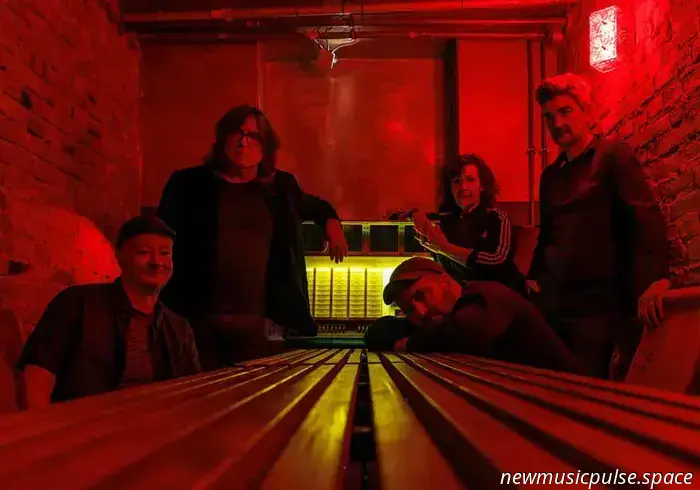
The Magnetic Fields are currently on tour in the UK, performing their iconic three-disc album over the span of two nights.
Released in 1999, '69 Love Songs' was an unconventional masterpiece. As suggested by its title, the album features 69 love songs, each crafted in a unique style, reflecting a wide range of romantic experiences from passionate encounters to heartbreaks, and moments of complete indifference.
It was an immediate critical triumph and significantly influenced the alternative music scene. The album traversed various genres with an almost unsettling agility, making it the quintessential concept album. Interestingly, it also hinted at a future dominated by algorithmic playlists, where individual tracks would take precedence over entire bodies of work. '69 Love Songs' captured the essence of its era, characterized by groundbreaking experimental albums, while foreshadowing their decline.
With a witty and sardonic tone, it was often unclear how much Stephen Merritt was poking fun at his chosen genre or his audience. A playful tension builds throughout the three CDs. While the songs individually resonate, our perception of the music shifts reflexively the deeper we delve. Can genuine emotion coexist within such contradictions or at such volumes? Was it overly naive to find 'Abigail Belle of Kilronan' moving? Or to feel affected by 'Epitaph for My Heart' when it is placed next to deliberately absurd songs like 'Punk Love' or the Edwardian-inspired, grammatically vague, 'For We Are the King of the Boudoir'? Perhaps this reflected the complexity of human experience. Yet, at every instance, the album highlighted the manipulation and artifice involved in song creation. One could be swept away by a heartfelt ballad, only to be jolted awake by a contrasting techno beat, as if to remind us that it was all merely performance. Even the album's title carried a mischievous irony.
This inherent irony remains beautifully resonant and becomes even more pronounced in a live setting. Perhaps due to the impressive setlist, the band performed with minimal introductions or transitions. Each song was presented as a standalone piece, accentuating the varied perspectives and moods.
Despite his prolific output, Stephen Merritt maintained a reserved demeanor. By the second night, his bandmates were nudging him to interact with the audience. His remarks were dry, observational and often cryptic. He mentioned, for reasons he couldn't recall, that the next two nights would include many songs about animals, as well as countries. The band remained seated throughout the performance; in another rare aside, Merritt shared that they had obtained their chairs in Bristol and had initially found them squeaky, but that issue seemed to have resolved. The other members remained silent. It was surprisingly refreshing to forgo the usual (often patronizing) banter between a band and the city they are in. Like the self-referential music, this awkward dialogue highlighted the peculiar nature of performance, along with our expectations for role-playing and manufactured emotions.
Union Chapel presents its own challenges as a venue. While beautiful and grand, its church acoustics can absorb sound, detracting from any sense of intimacy. Instead of constantly trying to fill the expansive space, the band often distilled the music to its essential elements, creating versions that were at times hauntingly ethereal. This approach worked particularly well with 'The Book of Love,' which felt deeply touching and fresh, despite its familiarity. Sam Davol's electric cello solo on 'I Shatter' carried an intensity reminiscent of scenes from Whiplash. Even some of the more sarcastic tracks gained new layers in this setting. Claudia Gonson delivered an electrifying performance of 'How Fucking Romantic,' with the finger snaps harshly echoing, her bright, sincere vocals contrasting sharply with the biting cynicism. Meanwhile, seemingly novelty tracks took on a vibrant energy, and a lavish interpretation of 'Love is Like Jazz' managed to emphasize its central message in ways that might have previously gone unnoticed.
Overall, the vocals were impressive. Some thoughtful rearrangements highlighted their collective range. Merritt's deep baritone was complemented by Gonson's higher, more wistful tone in playful duets. The nostalgic 'Washing, D.C.' was reinterpreted to reflect a loss of innocence since its original release. Anthony Kaczynski infused his songs with an electrifying energy and effortless flair. Each member maintained a generally composed stage presence; when movement occurred, it often had a comedic flair. One of Merritt's few (still seated) dance moves resembled a lazy crucifixion; occasionally, he would dramatically produce a small instrument, such as a triangle, with grand theatricality. Perhaps he and Gonson would share a glass of wine and join in a swaying, uneasy serenade. Mostly, however, the stillness on stage invited listeners to engage more deeply with the sound. Although the lighting was effective (ranging from gentle flickering to vibrant strobe

The Magnetic Fields are currently on tour in the UK with their iconic three-disc album, a significant event that will take place over two nights. Released